Unit 7 Abilities 知识点课件(46张PPT)2022-2023学年牛津译林版英语七年级下册
文档属性
| 名称 | Unit 7 Abilities 知识点课件(46张PPT)2022-2023学年牛津译林版英语七年级下册 |  | |
| 格式 | pptx | ||
| 文件大小 | 94.5KB | ||
| 资源类型 | 教案 | ||
| 版本资源 | 牛津译林版 | ||
| 科目 | 英语 | ||
| 更新时间 | 2023-05-15 19:43:54 | ||
图片预览


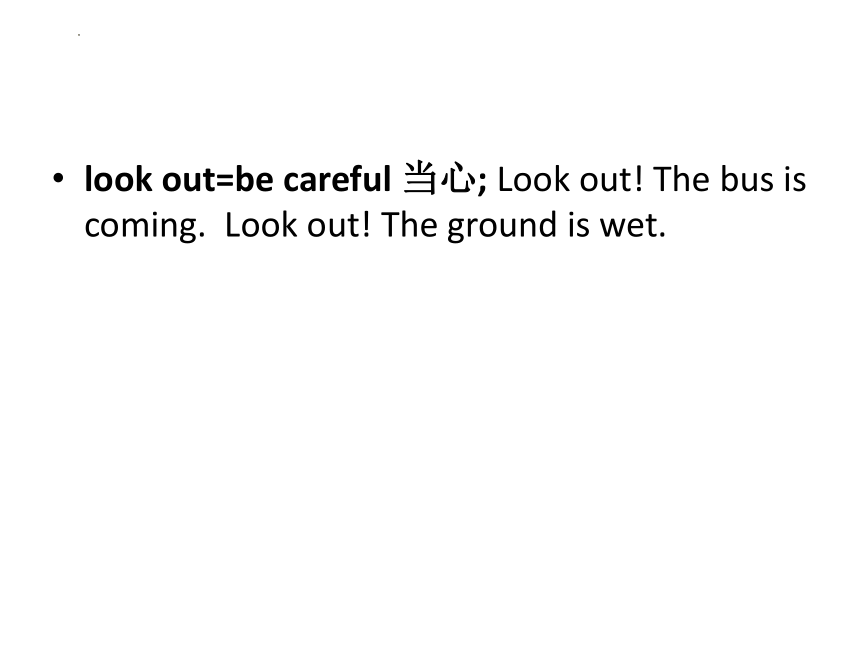


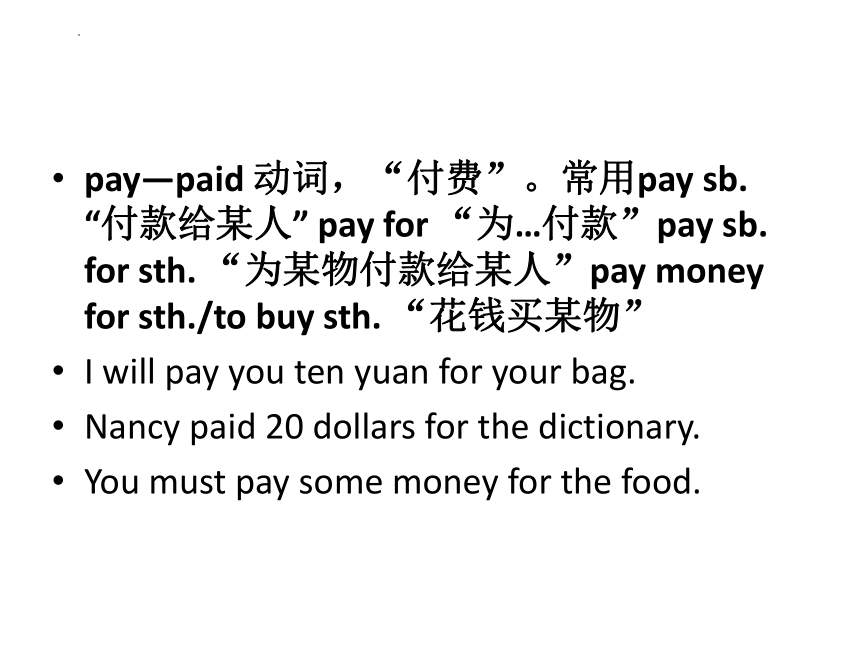
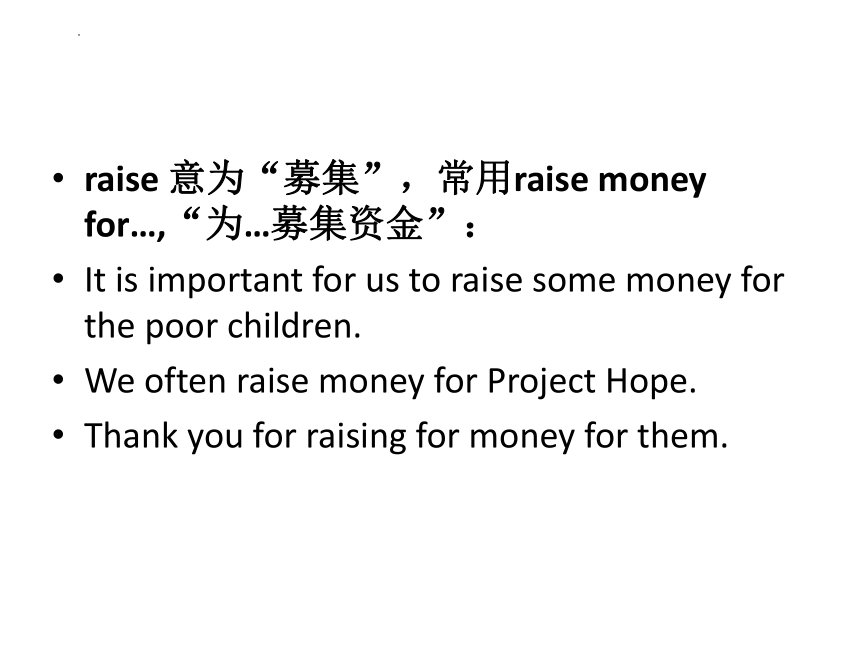
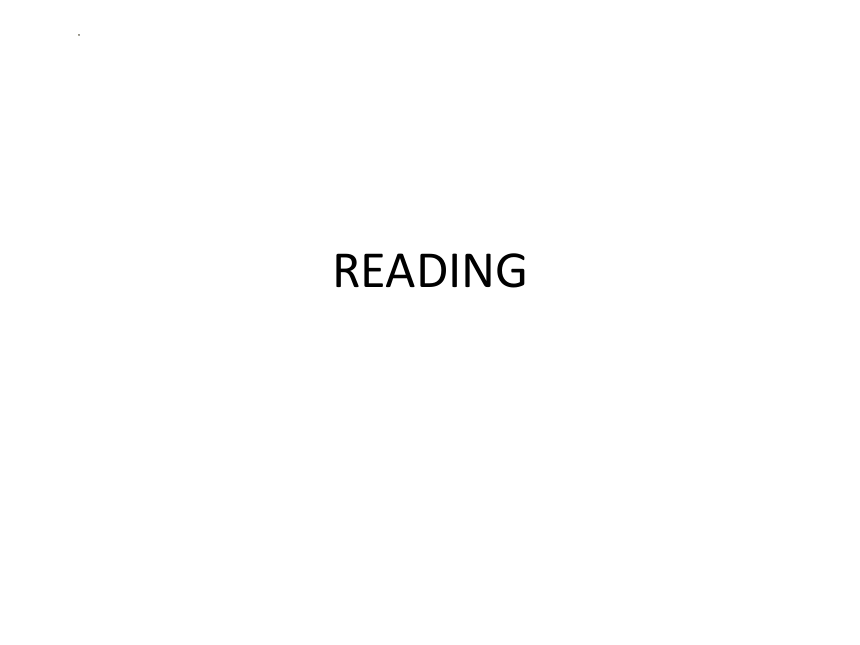
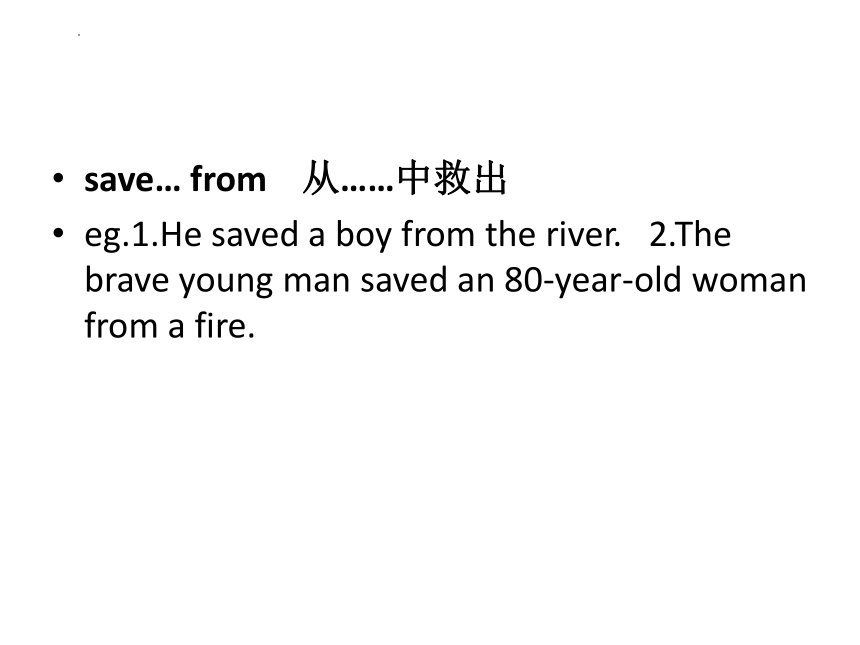
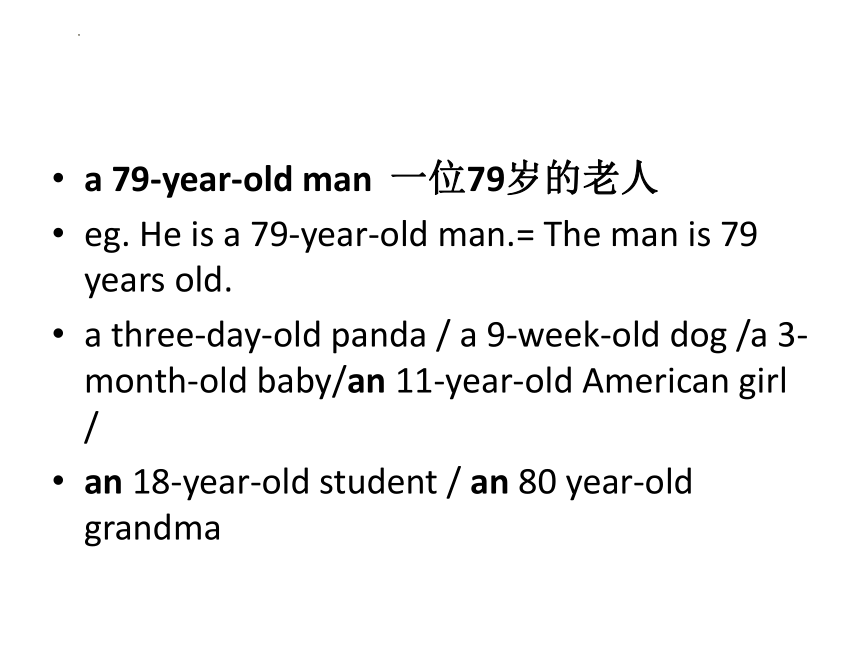
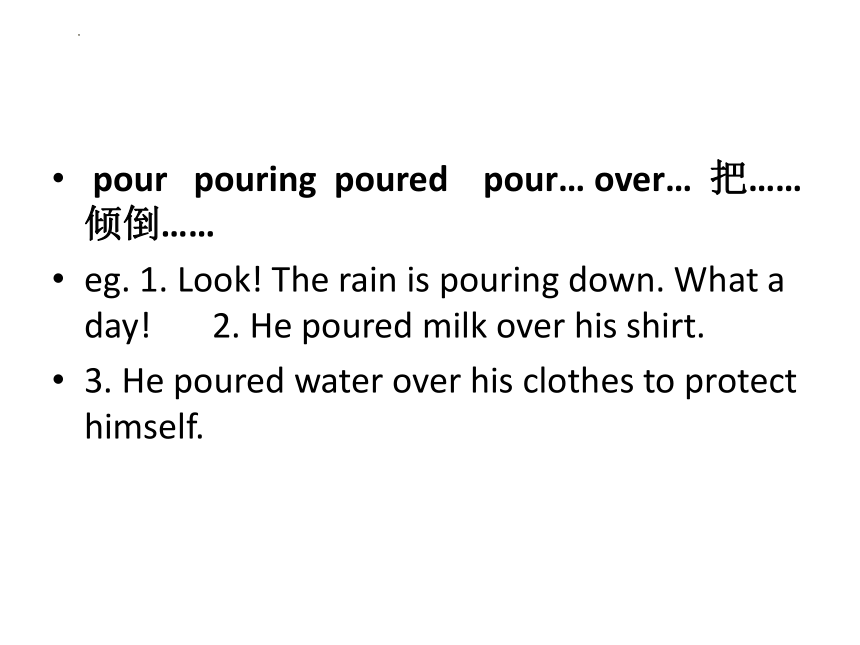
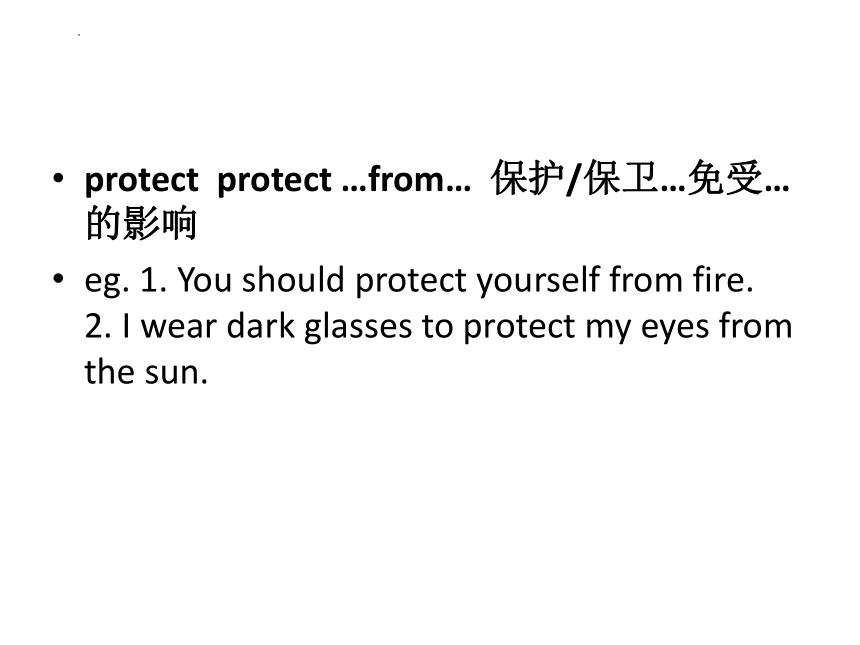
文档简介
(共46张PPT)
WELCOME
believe 相信:believe sb. 相信某人(所说的话是真的);believe in sb. 信任某人;
believe it or not 信不信由你;believe +that 从句
I believe Miss Green, but I can’t believe her.
It is right to believe in the old man.
Believe it or not. I’ll go there with my uncle.
I don’t believe (that) you are only twelve years old. (从句否定词not前移)
We don’t believe that the elephant will go through the door. (从句否定词not前移)
look out=be careful 当心; Look out! The bus is coming. Look out! The ground is wet.
send 表“发送”之意,send sb. sth.=send sth. to .sb;表“邮寄”之意,与动词post意义相同:
We want to send them some flowers.
What will you send to the new student
I sent an e-mail to her this morning.
Would you like to send a letter for me
able,能,能够,常常用在be able to 结构中,be able to 比can用途广(can没有将来时和完成时),be动词随主语的不同而发生相应地变化:I am/He is/They are/ able to speak some English now.
Wendy was able to play the piano when she was ten.
She will be able to sing and dance if I teach her in class.
pay—paid 动词,“付费”。常用pay sb. “付款给某人” pay for “为…付款”pay sb. for sth. “为某物付款给某人”pay money for sth./to buy sth. “花钱买某物”
I will pay you ten yuan for your bag.
Nancy paid 20 dollars for the dictionary.
You must pay some money for the food.
raise 意为“募集”,常用raise money for…,“为…募集资金”:
It is important for us to raise some money for the poor children.
We often raise money for Project Hope.
Thank you for raising for money for them.
READING
save… from 从……中救出
eg.1.He saved a boy from the river. 2.The brave young man saved an 80-year-old woman from a fire.
a 79-year-old man 一位79岁的老人
eg. He is a 79-year-old man.= The man is 79 years old.
a three-day-old panda / a 9-week-old dog /a 3-month-old baby/an 11-year-old American girl /
an 18-year-old student / an 80 year-old grandma
pour pouring poured pour… over… 把……倾倒……
eg. 1. Look! The rain is pouring down. What a day! 2. He poured milk over his shirt.
3. He poured water over his clothes to protect himself.
protect protect …from… 保护/保卫…免受…的影响
eg. 1. You should protect yourself from fire. 2. I wear dark glasses to protect my eyes from the sun.
rush rushes rush into … 冲进…… rush out of … 冲出……
eg. 1.He rushed into the fire to save a boy. 2.The children rushed out of the classroom after class.
3.They rushed home to find out what happened to Lucy.
put out the fire = put the fire out 扑灭火 put it out
eg.1. I am not strong enough to put out the fire. 2. Excuse me, would you please put out your cigarette
3. How long did it take the firemen to put out the fire
put on 穿上 put off脱下 put up 举起、搭建、张贴 put ---into--- 把---放进---
in hospital 住院 in a/ the hospital 在医院里
eg. 1.He works in a hospital. 2Amy was ill in hospital for a few days last week.
be careful with … 小心…… be careful (not)to do sth. 小心(不)做某事
eg 1. We must be careful with fire/matches.
2. The traffic is very busy. You should be careful to cross the street. 3. Be careful not to go near tigers.
burn burned/burnt eg. 1.The fire burnt his legs and arms. 2.He can burn things with his eyes.
nod nods nodding nodded nod to/at sb. 向某人点点头
eg. 1. We nod to each other when we meet.2. I nodded to show that I understood what the teacher said.
3. I saw her nod her head just now.
think about/of 考虑、认为
eg. 1. We are thinking about having a class meeting this afternoon.
2. He is thinking about what to do this afternoon.
3. What do you think about/of this new film = How do you like ---
hurt 使受伤,伤害; 疼 be badly hurt 受伤严重
eg. 1. He hurt his leg when he fell down a big hole. 2. My head often hurts.
3. He fell off the bike and was badly hurt yesterday.
stop sb. (from) doing sth. 阻止某人做某事
eg. 1. The heavy rain stopped us from going out. 2. We must stop the children from playing with the fire.
3. No one can stop us from going camping. 4. The noise stopped me from sleeping last night.
catch fire 着火(表动作);on fire着火(表状态);
eg. 1. Paper catches fire easily. 2. The house caught fire the other day. 3. Look! The building is on fire.
do something to do sth. 采取措施做某事
eg. 1. Do you do anything to protect your eyes 2. They must do something to protect our rivers and lakes.
keep away from 避开,逃离, 使避开, 使离开
eg. 1. Keep away from the fire.
2. Keep the child away from the fire and the water.
3. An apple a day keeps the doctor away.
GRAMMAR
Using can, could and may
我们可以用情态动词can/ could来表示能力。can表示现在的能力,could表示过去的某种能力。
1) He can speak a little English now.
2) We cannot / can’t ride a horse.
3) He could swim when he was four years old.
注意:我们也可以用be able to do sth.表示一个人的能力,be动词的形式根据句子的时态变化。
1) He is able to draw 3-D pictures with chalk.
2) --What were you able to do at the age of 7 --I was able to ride a bike.
我们也可以用情态动词can/ could/ may来表示许可。could表示一种委婉的语气,比起can表达更有礼貌。may较正式。
1) --Can I look at your new watch --Yes, you can. / OK./ Certainly. –No, you can’t./ Sorry.
2) --Could I put my coat here --Yes, you can. --No, you can’t.
3) --May I watch TV now --Yes, you may./ Yes, please./ Certainly. / Of course.
--No, you mustn’t./ Please don’t. / Sorry, you can’t.
Using What and How to express strong feelings
What + a/ an + 形容词 + 单数名词(+主语+谓语)!
1)What a beautiful garden it is! 2)What an interesting book Jim has!
What + 形容词 + 复数名词(+主语+谓语)!
1)What beautiful gardens they are! 2)What interesting books Jim and Mike have!
What + 形容词 + 不可数名词(+主语+谓语)!
1)What nice food it is! 2)What great fun it is to go cycling!
How + 形容词 (+主语+谓语)!
1)How interesting the book is! 2)How cute the panda looks!
How + 副词 (+主语+谓语)!
1)How slowly he walks! 2)How carefully the students are listening to the teacher!
smoke (v.) “吸烟,抽烟”
1)Can I smoke here 2)His father stopped smoking last April.
by the way “顺便说一下,顺便说说”,多用于口语中。
1)By the way, how are your parents 2)By the way, I love your hair that way.
leave sth. sp. “把某物忘记在某地”
1)I left my Chinese book at home this morning.
2)He had no money to buy anything because he left his wallet on the bus
INTEGRATED SKILLS
need to do sth more 需要多做某事
1) They need to read more and speak more.
2) We need to exercise more every day.
work/practice hard on …在某方面努力工作/练习
1) He should work hard on Maths.
2) Did you work hard on writing and listening
3) She practices hard on volleyball every Monday and Wednesday.
do one’s best (to do sth)=try one’s best (to do sth)尽某人最大努力(去做某事)
1) I’m sorry you didn’t win, but I’m sure you did your best.
2) I’ll do my best to finish the painting on time.
3) I failed in my English exam, but I did my best.
4) Let’s do our best to help the children in poor areas.
do well in sth/doing sth= be good at sth/doing sth;
1) Mike does well in History this term. = Mike is good at History this term.
2) Jack did well in playing basketball. = Jack was good at playing basketball.
3) I do well in playing the violin. Nick does better in playing the violin.
*4) I am weak in English.=I’m not good at English.
at the age of … =at 数字= when …was/were …(years old)在。。。岁的时候
1) We started to go to school at the age of 6. = We started to go to school when we were 6 (years old).
= We started to go to school at 6 (years old).
2) He learned how to ride a horse at the age of nine.
show v. 演示;展示;带领show sb how to do sth; show sb sth= show sth to sb; show sb around
show n.展览 a fashion show, school shows
1) Can you show me how to make the kite
2) The policeman shows me where to take the bus.
3) Did he show you his old photos
4) He showed the new students around the school yesterday afternoon.
be friendly to He is friendly to his neighbours.
Wh+ to do sth 作宾语 (who, whom, which, when, where, how和what)
1) I don’t know how to look after the little dog.
2) We want to tell them what to do tomorrow.
care ---careful ; careless
1) The careless driver hit the tree on a rainy night.
3) He was careless and he poured water over my computer.
4) I’m careless, I always leave my umbrella on the bus.
TASK
recommend 及物动词“推荐”,
常用的固定搭配有:recommend sb. for an award; 推荐某人得一个奖
recommend sb. as the monitor/chairperson/group leader…=recommend sb. to be the monitor/chairperson/group leader…推荐某人成为…
(1)I would like to recommend Simon for this year’s Most Helpful Student Award.
(2)I’m going to recommend you to be the chairperson of the Students’ Union.
(3) Miss White recommended me as the monitor.
take part in “参加(群众性活动/会议)” take an active part in “积极参加”
(1)You should take part in the school activities.
(2) We’ll take an active part in the sports meeting.
lose vt.”丢失;迷失;失去” lose one’s way 迷路 lost(过去式)
(1)If you lose your way in the city, you can ask the policemen.
(2)I lost my pen yesterday.
(3)Lei Feng lost his life for the country.
hear from sb= get/ receive a letter from sb”收到…的来信”
(1)I didn’t hear from her yesterday.
(2)When will you hear from your parents
need n. in need 在需要中的; be in need of 需要
(1)would you like to help children in need
(2)He was not in need of money at that moment.
WELCOME
believe 相信:believe sb. 相信某人(所说的话是真的);believe in sb. 信任某人;
believe it or not 信不信由你;believe +that 从句
I believe Miss Green, but I can’t believe her.
It is right to believe in the old man.
Believe it or not. I’ll go there with my uncle.
I don’t believe (that) you are only twelve years old. (从句否定词not前移)
We don’t believe that the elephant will go through the door. (从句否定词not前移)
look out=be careful 当心; Look out! The bus is coming. Look out! The ground is wet.
send 表“发送”之意,send sb. sth.=send sth. to .sb;表“邮寄”之意,与动词post意义相同:
We want to send them some flowers.
What will you send to the new student
I sent an e-mail to her this morning.
Would you like to send a letter for me
able,能,能够,常常用在be able to 结构中,be able to 比can用途广(can没有将来时和完成时),be动词随主语的不同而发生相应地变化:I am/He is/They are/ able to speak some English now.
Wendy was able to play the piano when she was ten.
She will be able to sing and dance if I teach her in class.
pay—paid 动词,“付费”。常用pay sb. “付款给某人” pay for “为…付款”pay sb. for sth. “为某物付款给某人”pay money for sth./to buy sth. “花钱买某物”
I will pay you ten yuan for your bag.
Nancy paid 20 dollars for the dictionary.
You must pay some money for the food.
raise 意为“募集”,常用raise money for…,“为…募集资金”:
It is important for us to raise some money for the poor children.
We often raise money for Project Hope.
Thank you for raising for money for them.
READING
save… from 从……中救出
eg.1.He saved a boy from the river. 2.The brave young man saved an 80-year-old woman from a fire.
a 79-year-old man 一位79岁的老人
eg. He is a 79-year-old man.= The man is 79 years old.
a three-day-old panda / a 9-week-old dog /a 3-month-old baby/an 11-year-old American girl /
an 18-year-old student / an 80 year-old grandma
pour pouring poured pour… over… 把……倾倒……
eg. 1. Look! The rain is pouring down. What a day! 2. He poured milk over his shirt.
3. He poured water over his clothes to protect himself.
protect protect …from… 保护/保卫…免受…的影响
eg. 1. You should protect yourself from fire. 2. I wear dark glasses to protect my eyes from the sun.
rush rushes rush into … 冲进…… rush out of … 冲出……
eg. 1.He rushed into the fire to save a boy. 2.The children rushed out of the classroom after class.
3.They rushed home to find out what happened to Lucy.
put out the fire = put the fire out 扑灭火 put it out
eg.1. I am not strong enough to put out the fire. 2. Excuse me, would you please put out your cigarette
3. How long did it take the firemen to put out the fire
put on 穿上 put off脱下 put up 举起、搭建、张贴 put ---into--- 把---放进---
in hospital 住院 in a/ the hospital 在医院里
eg. 1.He works in a hospital. 2Amy was ill in hospital for a few days last week.
be careful with … 小心…… be careful (not)to do sth. 小心(不)做某事
eg 1. We must be careful with fire/matches.
2. The traffic is very busy. You should be careful to cross the street. 3. Be careful not to go near tigers.
burn burned/burnt eg. 1.The fire burnt his legs and arms. 2.He can burn things with his eyes.
nod nods nodding nodded nod to/at sb. 向某人点点头
eg. 1. We nod to each other when we meet.2. I nodded to show that I understood what the teacher said.
3. I saw her nod her head just now.
think about/of 考虑、认为
eg. 1. We are thinking about having a class meeting this afternoon.
2. He is thinking about what to do this afternoon.
3. What do you think about/of this new film = How do you like ---
hurt 使受伤,伤害; 疼 be badly hurt 受伤严重
eg. 1. He hurt his leg when he fell down a big hole. 2. My head often hurts.
3. He fell off the bike and was badly hurt yesterday.
stop sb. (from) doing sth. 阻止某人做某事
eg. 1. The heavy rain stopped us from going out. 2. We must stop the children from playing with the fire.
3. No one can stop us from going camping. 4. The noise stopped me from sleeping last night.
catch fire 着火(表动作);on fire着火(表状态);
eg. 1. Paper catches fire easily. 2. The house caught fire the other day. 3. Look! The building is on fire.
do something to do sth. 采取措施做某事
eg. 1. Do you do anything to protect your eyes 2. They must do something to protect our rivers and lakes.
keep away from 避开,逃离, 使避开, 使离开
eg. 1. Keep away from the fire.
2. Keep the child away from the fire and the water.
3. An apple a day keeps the doctor away.
GRAMMAR
Using can, could and may
我们可以用情态动词can/ could来表示能力。can表示现在的能力,could表示过去的某种能力。
1) He can speak a little English now.
2) We cannot / can’t ride a horse.
3) He could swim when he was four years old.
注意:我们也可以用be able to do sth.表示一个人的能力,be动词的形式根据句子的时态变化。
1) He is able to draw 3-D pictures with chalk.
2) --What were you able to do at the age of 7 --I was able to ride a bike.
我们也可以用情态动词can/ could/ may来表示许可。could表示一种委婉的语气,比起can表达更有礼貌。may较正式。
1) --Can I look at your new watch --Yes, you can. / OK./ Certainly. –No, you can’t./ Sorry.
2) --Could I put my coat here --Yes, you can. --No, you can’t.
3) --May I watch TV now --Yes, you may./ Yes, please./ Certainly. / Of course.
--No, you mustn’t./ Please don’t. / Sorry, you can’t.
Using What and How to express strong feelings
What + a/ an + 形容词 + 单数名词(+主语+谓语)!
1)What a beautiful garden it is! 2)What an interesting book Jim has!
What + 形容词 + 复数名词(+主语+谓语)!
1)What beautiful gardens they are! 2)What interesting books Jim and Mike have!
What + 形容词 + 不可数名词(+主语+谓语)!
1)What nice food it is! 2)What great fun it is to go cycling!
How + 形容词 (+主语+谓语)!
1)How interesting the book is! 2)How cute the panda looks!
How + 副词 (+主语+谓语)!
1)How slowly he walks! 2)How carefully the students are listening to the teacher!
smoke (v.) “吸烟,抽烟”
1)Can I smoke here 2)His father stopped smoking last April.
by the way “顺便说一下,顺便说说”,多用于口语中。
1)By the way, how are your parents 2)By the way, I love your hair that way.
leave sth. sp. “把某物忘记在某地”
1)I left my Chinese book at home this morning.
2)He had no money to buy anything because he left his wallet on the bus
INTEGRATED SKILLS
need to do sth more 需要多做某事
1) They need to read more and speak more.
2) We need to exercise more every day.
work/practice hard on …在某方面努力工作/练习
1) He should work hard on Maths.
2) Did you work hard on writing and listening
3) She practices hard on volleyball every Monday and Wednesday.
do one’s best (to do sth)=try one’s best (to do sth)尽某人最大努力(去做某事)
1) I’m sorry you didn’t win, but I’m sure you did your best.
2) I’ll do my best to finish the painting on time.
3) I failed in my English exam, but I did my best.
4) Let’s do our best to help the children in poor areas.
do well in sth/doing sth= be good at sth/doing sth;
1) Mike does well in History this term. = Mike is good at History this term.
2) Jack did well in playing basketball. = Jack was good at playing basketball.
3) I do well in playing the violin. Nick does better in playing the violin.
*4) I am weak in English.=I’m not good at English.
at the age of … =at 数字= when …was/were …(years old)在。。。岁的时候
1) We started to go to school at the age of 6. = We started to go to school when we were 6 (years old).
= We started to go to school at 6 (years old).
2) He learned how to ride a horse at the age of nine.
show v. 演示;展示;带领show sb how to do sth; show sb sth= show sth to sb; show sb around
show n.展览 a fashion show, school shows
1) Can you show me how to make the kite
2) The policeman shows me where to take the bus.
3) Did he show you his old photos
4) He showed the new students around the school yesterday afternoon.
be friendly to He is friendly to his neighbours.
Wh+ to do sth 作宾语 (who, whom, which, when, where, how和what)
1) I don’t know how to look after the little dog.
2) We want to tell them what to do tomorrow.
care ---careful ; careless
1) The careless driver hit the tree on a rainy night.
3) He was careless and he poured water over my computer.
4) I’m careless, I always leave my umbrella on the bus.
TASK
recommend 及物动词“推荐”,
常用的固定搭配有:recommend sb. for an award; 推荐某人得一个奖
recommend sb. as the monitor/chairperson/group leader…=recommend sb. to be the monitor/chairperson/group leader…推荐某人成为…
(1)I would like to recommend Simon for this year’s Most Helpful Student Award.
(2)I’m going to recommend you to be the chairperson of the Students’ Union.
(3) Miss White recommended me as the monitor.
take part in “参加(群众性活动/会议)” take an active part in “积极参加”
(1)You should take part in the school activities.
(2) We’ll take an active part in the sports meeting.
lose vt.”丢失;迷失;失去” lose one’s way 迷路 lost(过去式)
(1)If you lose your way in the city, you can ask the policemen.
(2)I lost my pen yesterday.
(3)Lei Feng lost his life for the country.
hear from sb= get/ receive a letter from sb”收到…的来信”
(1)I didn’t hear from her yesterday.
(2)When will you hear from your parents
need n. in need 在需要中的; be in need of 需要
(1)would you like to help children in need
(2)He was not in need of money at that moment.
